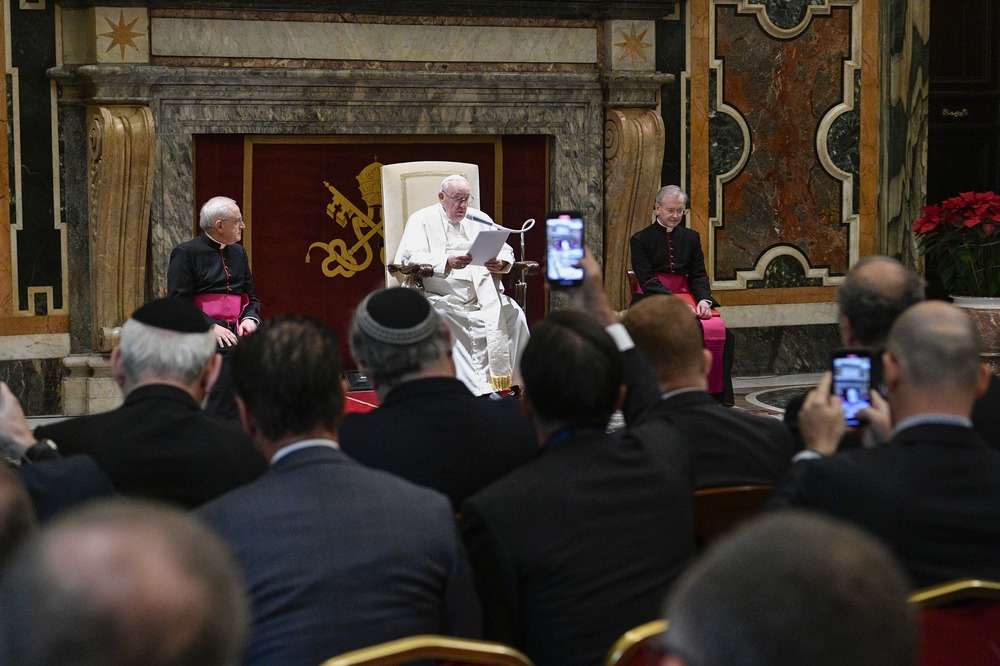
Pope Francis leads an audience with participants of the Rome Call for AI ethics meeting, at the Vatican Jan. 10, 2023. (CNS/Vatican Media)
Artificial intelligence or any other technology that worsens inequality around the world and increases fake news should not be embraced as "progress," Pope Francis told business and government leaders meeting in Davos, Switzerland.
"Technological developments that do not improve life for everyone, but instead create or worsen inequalities and conflicts, cannot be called true progress," the pope said in a message to the World Economic Forum.
AI, he said, "should be placed at the service of a healthier, more human, more social and more integral development."
Francis' message, addressed to Klaus Schwab, chairperson of the forum, was delivered by Cardinal Peter Turkson, chancellor of the Pontifical Academy of Sciences and the Pontifical Academy of Social Sciences, and was published by the Vatican Jan. 23.
The annual meeting in Davos Jan. 20-24 brought together leaders in business, government, academia and media to discuss security and cooperation, particularly regarding Russia's war on Ukraine; technology's impact on businesses and development; and safeguarding the planet.
While the Catholic Church supports technological development as a result of God-given human creativity, "AI is intended to imitate the human intelligence that designed it, thus posing a unique set of questions and challenges," the pope said in his message.
Since "the results that AI can produce are almost indistinguishable from those of human beings," the pope wrote, questions must be raised about "its effect on the growing crisis of truth in the public forum."
Francis also reiterated his concern about artificial intelligence and its use in weapons systems, health care and other life-and-death situations.
Advertisement
"This technology," he wrote, "is designed to learn and make certain choices autonomously, adapting to new situations and providing answers not foreseen by its programmers, thus raising fundamental questions about ethical responsibility, human safety, and the broader implications of these developments for society."
People need to be aware that AI really "is not an artificial form of human intelligence but a product of it," the pope said. "When used correctly, AI assists the human person in fulfilling his or her vocation, in freedom and responsibility."
But it is simply an assistant, he said, and not the answer to all the world's problems.
Too often, the pope wrote, "human dignity and fraternity are frequently subordinated in the pursuit of efficiency, as though reality, goodness, and truth inherently emanate from technological and economic power."
"Human dignity must never be violated for the sake of efficiency," Francis said.
"As with all other human activity and technological development, AI must be ordered to the human person," he said.
Citing the vision of true progress promoted in the Second Vatican Council's Pastoral Constitution on the Church in the Modern World, Francis insisted that AI should "become part of efforts to achieve 'greater justice, more extensive fraternity and a more humane order of social relations' which are 'more valuable than advances in the technical field.'"






